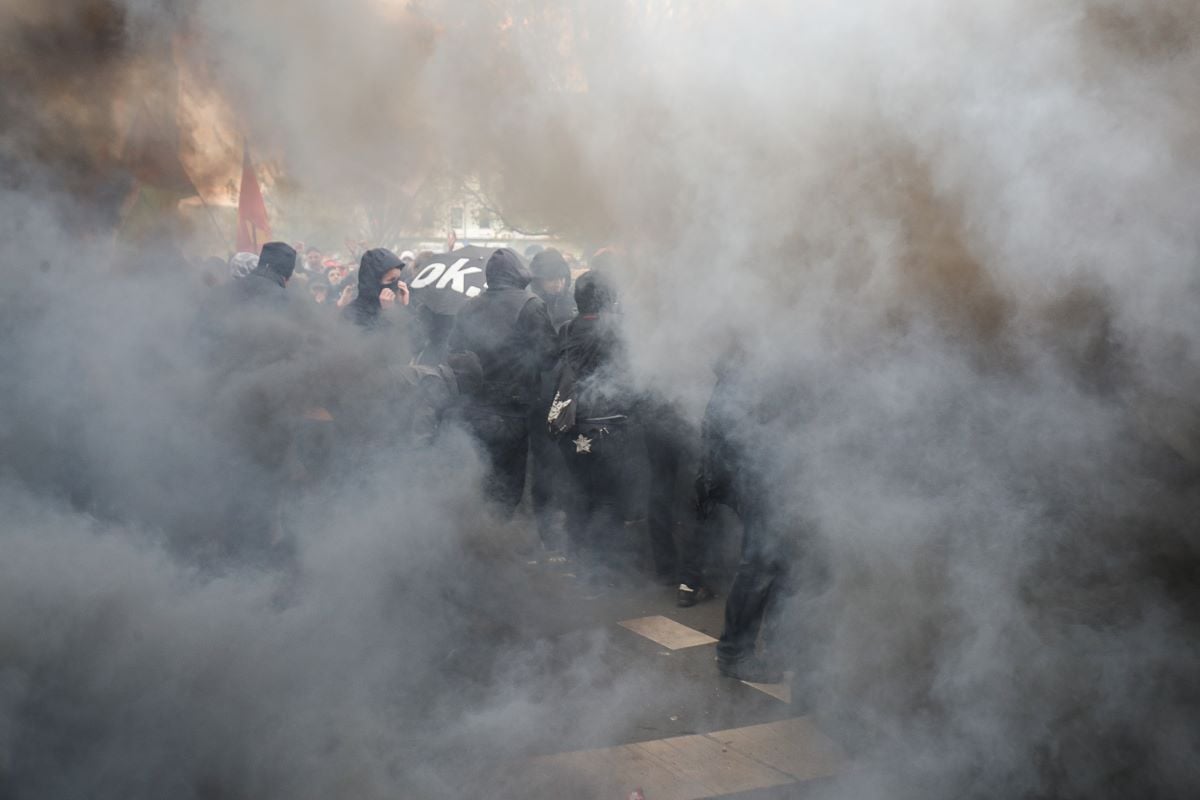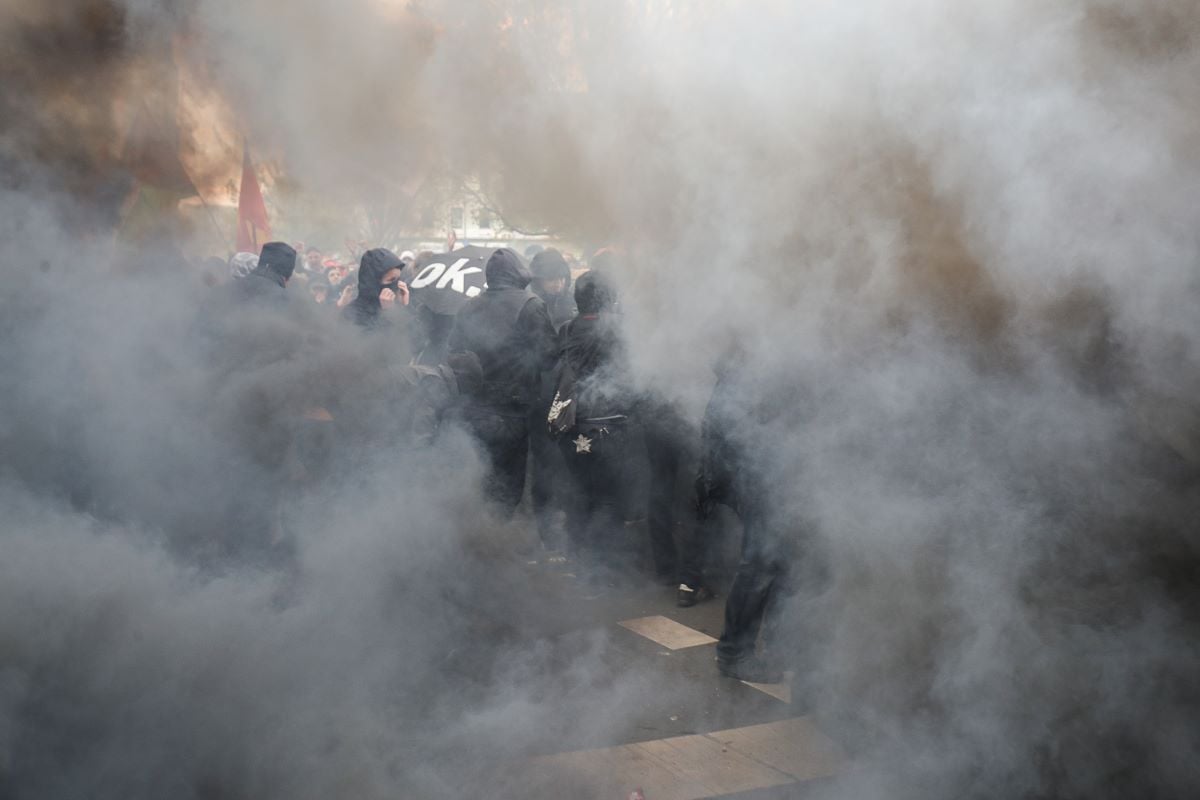May 1st is Labour Day in Germany, a nationwide public holiday that dates back over 130 years.
In German its commonly called Tag der Arbeit, and English it is also called May Day.
Not to be confused with Labour Day as it is celebrated the US or Australia (where the holiday comes in September or October respectively, and simply serves as a day off work to relax), Germany’s Labour Day is part of a the broader International Workers’ Day tradition, and is linked to a history of labour struggles and protests.
Interestingly, Germany’s Tag der Arbeit tradition can actually be traced back to a protest in Chicago in 1886, which sparked the beginning of calls to limit work days to eight-hours.
READ ALSO: EXPLAINED – Why is May 1st significant in Germany?
Since then however, the US has largely forgotten about May Day as a day for labour organisation (with the exception of a few communities), whereas the tradition remains alive and well in Germany and at least 65 other countries around the world.
Advertisement
What’s closed for the holiday?
As an official public holiday in Germany, banks and post offices are closed on May 1st, which falls on a Wednesday in 2024.
It wouldn’t really make sense to make people work on a day set aside for the celebration of workers’ rights. So you should expect that supermarkets and most other businesses will also remain shut for the day.
Cafes, beer gardens, restaurants and other hospitality businesses hoping to cash in on the day of leisure, however, may be open.
For spätis or kiosks in busy neighbourhoods, for example, the number of people going out to parks and walking around the streets ensures that May 1st is one of the more profitable days of the year.
What’s happening for the holiday?
Labour Day coincides with a German folk tradition to ‘dance into May’ (Tanz in den Mai).
This involves festivities which start on the evening of April 30th, so that celebrators can spring into May on their feet by dancing through midnight into the morning of the 1st.
But more practically, this means that there are plenty of dance parties scheduled for the evening of April 30th, as well as day time events on May 1st.
For example, readers in Berlin might consider the “Dancing instead of working on May 1st” event at Mariannenplatz, which kicks off at 10 am and is free to the public. Also in the neighbourhood will be a free open air at Bolzplatz Falckensteinstraße Xberg, and not too far away a handful of clubs are offering free-entrance day time events, including Renate and Ritter Butzke.
Advertisement
In Cologne, Maydance “the big queer party” starts on April 30th from 10 pm at Quater1. In Düsseldorf, there are dancing events at the Brauhaus Alter Bahnhof as well as an open air event at the SC Unterbach football team’s clubhouse.
In Bavaria, dancing into May is a big part of the regions early spring celebrations, but traditionally this takes place at folk festivals in different villages and cities across the South-eastern ‘Free State’. One of the bigger May Day celebrations in Munich happens at the Viktualienmarkt, where you can see local bands, see the ‘Maypole’ and drink seasonal Maibock beer.
But Munich also has a number of options for dancing into May at modern clubs including a disco at Villa Flora or a party at La Rumba Latin Club. Or if food and drink sound more appealing, the Backstage Beergarten is opening on May 1st, and will be serving €5 Augustiner Maß krugs (giant beers).
Traditionally, April 30th is also Walpurgisnacht – a ‘night of witches’ – where many people celebrate in towns and villages around the Harz Mountains.
Where will there be protests?

Masked protestors at an unregistered “Revolutionary May Day Demonstration” walk through smoke from pyrotechnics. Photo: picture alliance / Michael Kappeler/dpa | Michael Kappeler
No German city outdoes the capital when it comes to Labour Day protests, with Berlin’s Kreuzberg neighbourhood historically hosting some of the nation’s largest May Day demonstrations.
That tradition lives on to this day, with Berlin’s infamous central neighbourhood arguably still the epicentre of May 1st activities.
Historically, some May Day protests have left a fair amount of property damage in their wake, including burned cars. So police warnings about “Revolutionary May Day Demos” in Kreuzberg and Neukölln have become a Berlin tradition, and this year is no different.
Advertisement
The majority of protests are intended to be peaceful, but when thousands of protestors are confronted by police armed with riot control gear, there are sure to be outbreaks of violence at flash points.
This year’s main rally begins at Südstern at 6pm, and will move through Hermannplatz and along Sonnenallee before looping back to the start point.
But no matter where you live in Germany, you probably don’t have to go too far to find a labour rally on May 1st.
Beside the “revolutionary” demos are nationwide rallies organised by The German Trade Union Confederation (DGB) and related partners that tend to have a significantly less confrontational tone.
This year, the DGB’s main Labour Day event will take place in Hanover with a rally at Goseriedeplatz, and will be followed by a family friendly May Festival with a concert, according to the DGB’s website.
Read More: World News | Entertainment News | Celeb News
Locals









